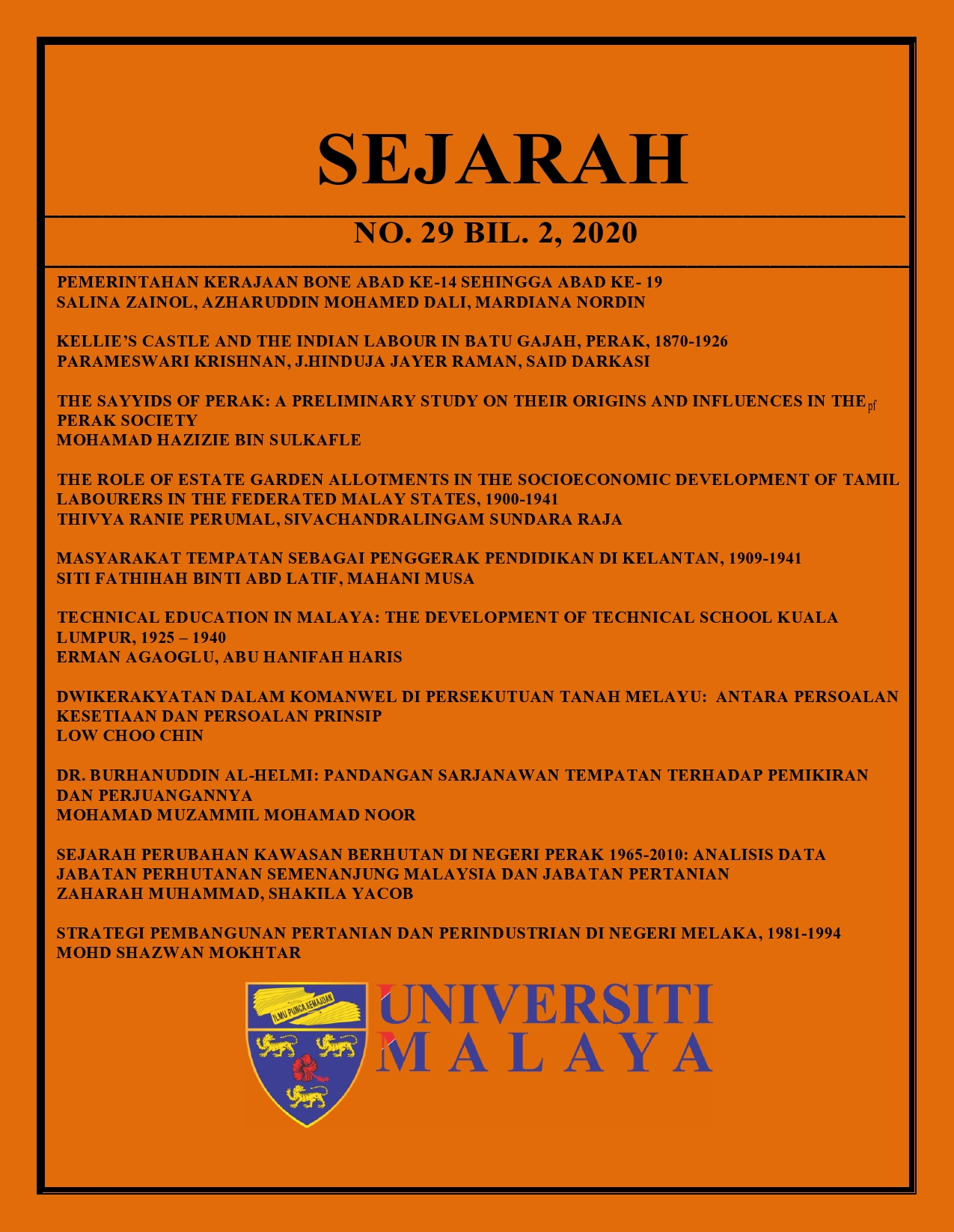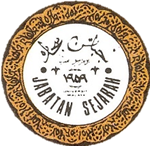THE ROLE OF ESTATE GARDEN ALLOTMENTS IN THE SOCIOECONOMIC DEVELOPMENT OF TAMIL LABOURERS IN THE FEDERATED MALAY STATES, 1900-1941
DOI:
https://doi.org/10.22452/sejarah.vol29no2.4Keywords:
Federated Malay States, Tamils, Allotments, Foodstuff Cultivation, Livestock FarmingAbstract
The article evaluates the extent to which estate garden allotments in the Federated Malay States (FMS) contributed to the socioeconomic development of Tamil labourers from the opening of the 20th century until 1941. This study is using qualitative methods such as archieval data. The findings show that by the late nineteenth century, the British government had initiated an immigrant agriculture policy in response to the need of preserving sufficient labour force to service the industrial economy. The extensive development of rubber industry from the early twentieth century, however, led to the permanent revocation of the policy, considering extensive immigration of large numbers of Tamil labourers was guaranteed through the Tamil (later, Indian) Immigration Fund Ordinance. Nevertheless, the policy did resurface from time to time during periods of economic recession following the First World War from 1917 and the Great Depression in the 1930s. It was when industrial slowdown compelled the British administration and rubber capitalists to preserve as many labourers as possible. The strategy was to induce them in undertaking allotment farming, which was embodied in the 1928 Labour Code. This article serves a twofold purpose. First, to analyze the extent to which the allotments on selected estates were able to alleviate the socioeconomic problems of the Tamils and; secondly, to evaluate the possibility of their transforming into agriculturalists and small-scale food vendors. The final part highlights allotment units, foodstuff cultivation and livestock farming as essential ingredients required for the socioeconomic functioning of estate agricultural allotments.
Received: 1 May 2020
Reviewed: 2 May 2020
Accepted: 8 October 2020


